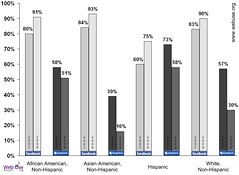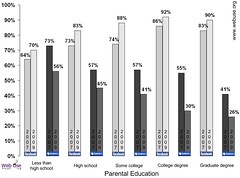Will today’s innovations stop future innovations?
Monday, July 20th, 2009This excellent piece by Jonathan Zittrain explains very nicely the potential downsides of how cloud computing is developing these days. (“Cloud” here refers to having all our data reside out there on others’ machines instead of on our own devices.)
A few quotes, but as we like to say, read the whole thing.
The crucial legacy of the personal computer is that anyone can write code for it and give or sell that code to you — and the vendors of the PC and its operating system have no more to say about it than your phone company does about which answering machine you decide to buy. Microsoft might want you to run Word and Internet Explorer, but those had better be good products or you’ll switch with a few mouse clicks to OpenOffice or Firefox.
[..]
The iPhone’s outside apps act much more as if they’re in the cloud than on your phone: Apple can decide who gets to write code for your phone and which of those offerings will be allowed to run. The company has used this power in ways that Bill Gates never dreamed of when he was the king of Windows: Apple is reported to have censored e-book apps that contain controversial content, eliminated games with political overtones, and blocked uses for the phone that compete with the company’s products.
[..]
When we vest our activities and identities in one place in the cloud, it takes a lot of dissatisfaction for us to move. And many software developers who once would have been writing whatever they wanted for PCs are simply developing less adventurous, less subversive, less game-changing code under the watchful eyes of Facebook and Apple.
On a related note, this post seems like an appropriate occasion to link to this great cartoon, which the artist created over 10 months ago.




